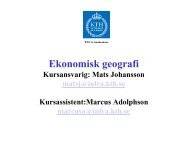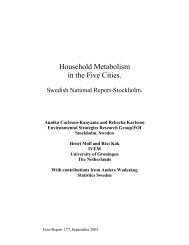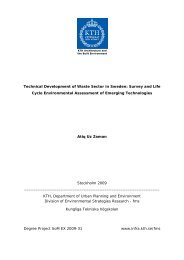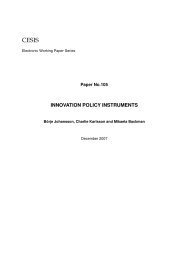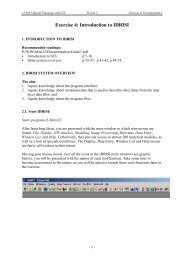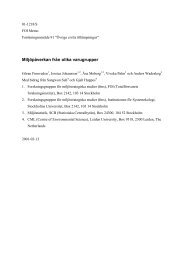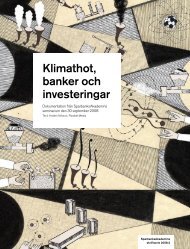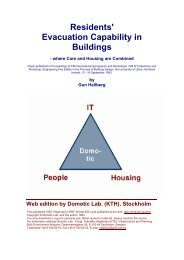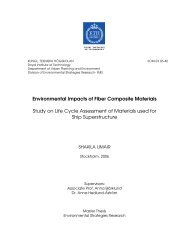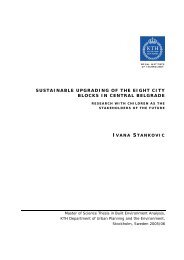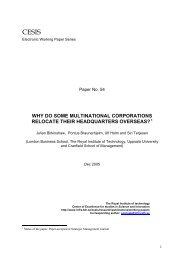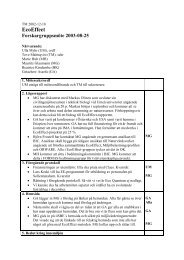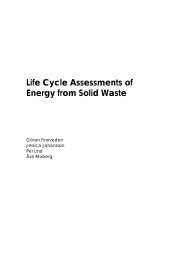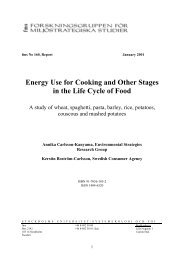Stockholmarnas resvanor - mellan trängselskatt och klimatdebatt
Stockholmarnas resvanor - mellan trängselskatt och klimatdebatt
Stockholmarnas resvanor - mellan trängselskatt och klimatdebatt
You also want an ePaper? Increase the reach of your titles
YUMPU automatically turns print PDFs into web optimized ePapers that Google loves.
cations are used. Such professional duties may in fact give rise to extensive<br />
travelling that is difficult to replace with other forms of communication.<br />
In working from an office hotel near home, concrete work tasks were<br />
similarly important. Those who delivered well-defined, mature products<br />
were able to use communications effectively and also to make few trips<br />
apart from the short trip between home and office hotel. Groups with very<br />
high work-life mobility, certain salesmen and consultants used the office<br />
hotel to compensate for/manage long- or short-distance travel to visit<br />
customers or their own head offices (often abroad).<br />
Another controlling factor was power. In both the private and public<br />
sector, there are numerous examples of how power relationships determine<br />
who is expected to travel or communicate in a certain way. Being able to<br />
limit one’s travel or accessibility can be an expression of an influential or<br />
stable position.<br />
An important outcome of the study was that it is not sufficient to base<br />
studies of options for reducing travel on traditional sub-divisions into various<br />
branches, professions and functions. Such sub-divisions are not designed<br />
for resolving issues regarding what determines the balance between<br />
individuals being located at a particular site and travelling or communicating<br />
over space and time. It is also not sufficient to base studies solely on<br />
formal job descriptions, as these seldom coincide completely with the type<br />
of results people are attempting to achieve in their professional role or the<br />
methods they use in practice.<br />
Travel over the course of life<br />
The final chapter in part D) presents empirical findings on changes in travel<br />
habits over the course of life, which are often determined by changes in<br />
family circumstances, housing and work. An interesting example was the<br />
car-free families in the inner city. They were permanent inner city dwellers<br />
who did not change area or type of housing when they had children (or<br />
who did not change job if they moved house). There were no clear breaks<br />
in their travel habits. In other families, several types of change in their life<br />
situation coincided, and often affected their travel habits. Through choices<br />
and adjustments that are made relatively seldom during the course of life,<br />
individuals and families create the basic conditions for their activities and<br />
travel habits. It should therefore be noted that political actions produce<br />
different types of effect. Economic tools are often intended to act from a<br />
short time perspective and generally across the population. They therefore<br />
overlook the effects that cause some individuals and groups to be affected<br />
in the long-term and in specific ways, e.g. families that move house and<br />
Summary 181



